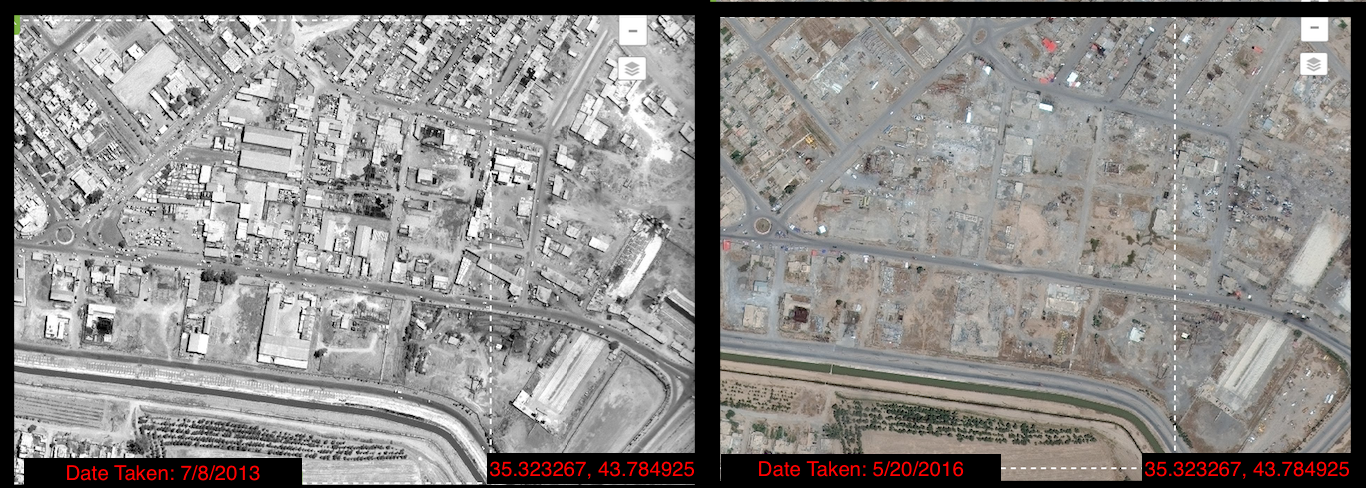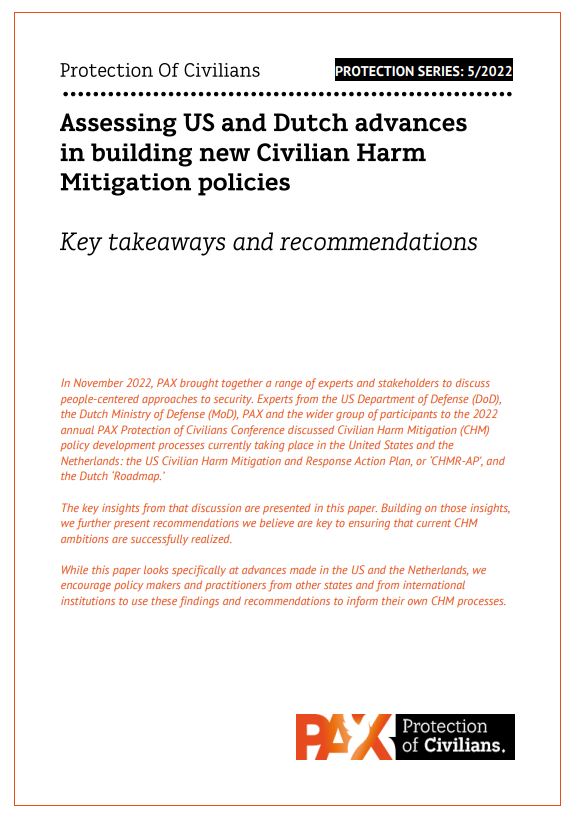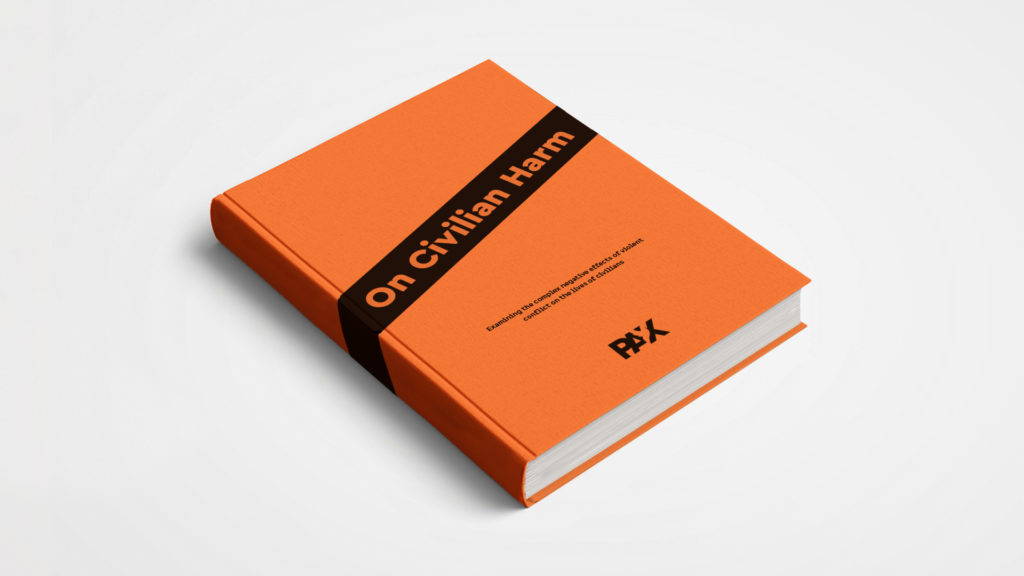Photo: Johannes Ode
Civilian Harm
Protecting civilians requires understanding how people are harmed by the actions of military actors. PAX researches the immediate and long-term impacts of the use of force, and advocates for measures to better mitigate and respond to civilian harm.
Understanding the direct and reverberating effects of conflict
Civilian harm mitigation is a legal, moral and military-strategic imperative. PAX enables states, armed forces and others to better monitor and respond to civilian harm. In addition to immediate casualties, the damage to physical infrastructure, basic services and mental health reflects the true impacts of conflict.
PAX’s approach includes:
– Research into the global effects of conflict
– Advocacy linking civilian and academic experts with policymakers and military
– Training military actors to prevent or mitigate civilian harm
For more information, see PAX’s Protection in Practice project.
Latest publications about this topic
Featured
report 23 November 2022
Assessing US and Dutch advances in building new CHM policies
In November 2022, we brought together a range of experts and stakeholders to discuss people-centered approaches to security in our annual Protection of Civilians Conference. This report presents the key takeaways and recommendations from the 2022 PoC Conference session on the CHMR-AP and Roadmap processes.

Satellite Images by Azmat Khan (NYT)
Hawija research
Understanding how civilians are harmed by violent conflict is vital for protection. As such, we study the long-term effects of civilian harm in Hawija, Iraq.
In partnership with Al-Ghad League for Woman and Child Care and Utrecht University, we study the long-term effects of civilian harm from the June 2015 Dutch airstrike in Hawija.
On Civilian Harm
How are civilians negatively affected by conflict? And how can we reduce both immediate and long-term suffering? We address these questions in our book ‘On Civilian Harm’.
We tend to discuss the impact of conflict on civilians in terms of the wounded and the dead. Yet, civilians experience many other negative effects from violence. ‘On civilian harm’ offers a realistic representation of these experiences.


